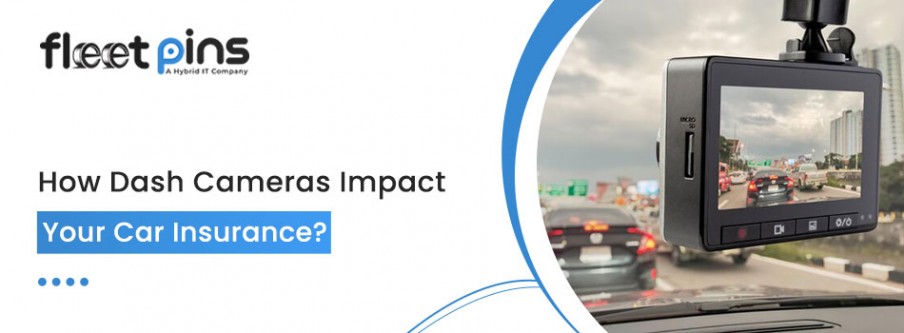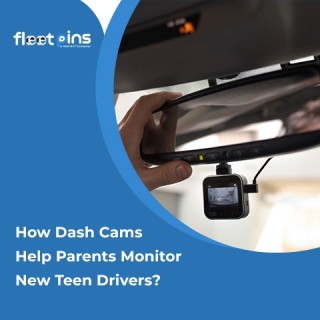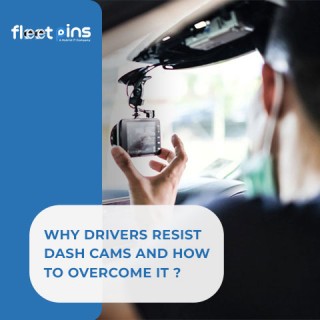
- On 2024-07-10
How Dash Cameras Impact Your Car Insurance
Dash cameras, commonly known as dash cams, have become increasingly popular among drivers worldwide. These small, often unobtrusive devices can be mounted on your vehicle's dashboard or windshield, recording everything that happens while you drive. While their primary function is to provide a visual record of your journeys, dash cams have several other benefits, including their potential impact on your car insurance.
Let’s explore what dash cams are, how they work, and how they might influence your car insurance premiums. We'll also delve into the possible insurance benefits of installing a dash cam, providing a comprehensive overview of this important topic.
What is a Dash Cam and How Does It Work?
A dash cam is a small video camera designed to record the view through a vehicle's front and sometimes rear windscreen. It can continuously record while the car is in motion, capturing events as they occur in real-time. Dash cams are typically equipped with features such as loop recording, which allows them to overwrite old footage automatically, and G-sensors, which detect sudden movements or impacts and save the relevant footage.
Some advanced models also come with GPS tracking, night vision, and even dual cameras to record both the road ahead and the interior of the car.
Primary Components of a Dash Cam
The primary components of a dash cam include:
- Camera Lens: Captures video footage.
- Memory Card: Stores the recorded footage.
- Power Supply: Usually connected to the car's cigarette lighter or hardwired into the vehicle's electrical system.
- Mounting System: Attaches the camera to the windshield or dashboard.
Dash cams start recording automatically when the car is turned on and stop when the engine is turned off. The recorded footage can be reviewed on the device itself or transferred to a computer for a more detailed examination.
Do Dash Cams Impact Your Car Insurance?
The impact of dash cams on car insurance can vary depending on several factors, including the insurance provider, the type of policy, and the specific circumstances of the driver. Generally speaking, dash cams can influence car insurance in the following ways:
Potential Premium Discounts
Some insurance companies offer discounts to drivers who install dash cams, recognizing the device's potential to reduce fraudulent claims and provide clear evidence in the event of an accident.
Claims Process
Dash cams can streamline the claims process by providing clear, objective evidence of what happened during an incident, potentially leading to faster and more accurate claim resolutions.
Dispute Resolution
In cases where there is a dispute about fault or liability, dash cam footage can be instrumental in resolving the issue, often in favor of the driver with the recording.
Insurance Benefits of Installing a Dash Cam
Insurance companies may offer premium discounts to drivers who have dash cams installed in their vehicles. The rationale behind this is straightforward: dash cams can provide clear and objective evidence during accidents, reducing the risk of fraudulent claims and ensuring accurate fault determination. This lowered risk allows insurance companies to offer reduced premiums to dash cam users.
Reduced Fraudulent Claims:
Dash cam footage can deter individuals from making false claims or exaggerating damages, as the recorded evidence can easily disprove fraudulent statements.
Accurate Fault Determination:
Clear video evidence helps insurers quickly and accurately determine who was at fault in an accident, minimizing the time and resources spent on investigations.
Streamlined Claims Process
Dash cams can significantly streamline the claims process. When an accident occurs, the recorded footage provides a clear account of the events leading up to the incident, the impact itself, and the aftermath. This is particularly useful in situations with conflicting accounts of what happened.
- Clear Evidence: Dash cam footage offers an unbiased, real-time record of events, making it easier for insurance adjusters to assess the situation and make informed decisions.
- Faster Resolution: With clear evidence readily available, the claims process can move more quickly, leading to faster payouts and repairs.
Dispute Resolution
In the event of a dispute over fault or liability, dash cam footage can be crucial evidence. This is especially important when there are no independent witnesses, or when the accounts of those involved differ significantly. The dash cam acts as an impartial witness, providing a reliable account of the events. Footage can protect drivers from false claims made by other parties, ensuring they are not unfairly penalized for incidents they did not cause.
Conclusion
In summary, dash cams offer several potential benefits that can positively impact your car insurance. From possible premium discounts and a streamlined claims process to providing critical evidence in dispute resolution, these devices can play a significant role in enhancing your overall driving experience and providing peace of mind. As more insurance companies recognize the value of dash cams, it is likely that their impact on car insurance will continue to grow.
If you’re considering installing a dash cam, it’s worth checking with your insurance provider to see what benefits they might offer, and how you can make the most of this valuable tool.




